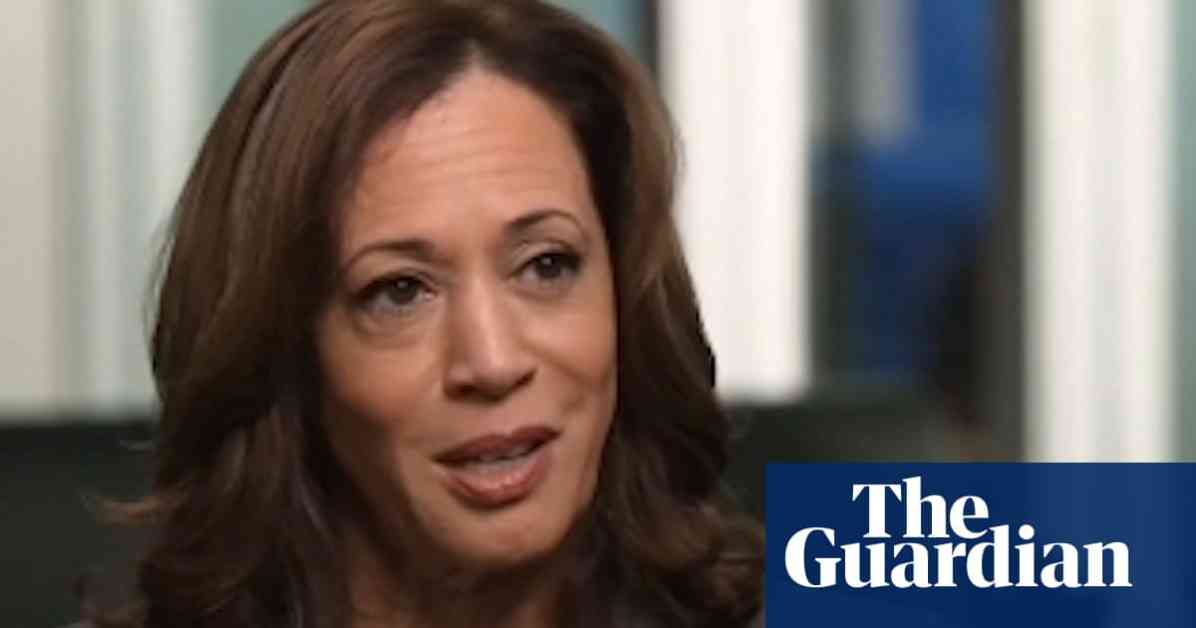Kamala Harris Makes Headlines in First Major Interview
Kamala Harris, the Democratic presidential nominee, sat down for her first major interview with CNN’s Dana Bash, alongside her running mate, Tim Walz. The interview, which took place in Savannah, Georgia, covered a wide range of topics, including policy stances, plans for office, and reflections on her journey to becoming the vice president.
Policy Stances and Priorities
During the interview, Harris outlined her top priorities upon taking office, emphasizing her commitment to supporting and strengthening the middle class. She discussed specific policy initiatives, such as increasing the child tax credit, addressing price gouging on everyday goods, and expanding access to affordable housing. These policies have been central to her campaign platform and reflect her dedication to economic equity and social justice.
Harris also addressed her evolving positions on certain issues, such as fracking and immigration. While she clarified that her values have remained consistent, she acknowledged the importance of adapting to new information and perspectives. For example, she explained her decision not to support a ban on fracking, emphasizing her belief in promoting a thriving clean energy economy without sacrificing economic growth.
Reflecting on Biden’s Presidency
Throughout the interview, Harris expressed admiration for President Biden and highlighted the transformative impact of his administration. She defended her early endorsement of Biden, citing his intelligence, commitment, and judgment as qualities that the American people deserve in their president. Harris praised the administration’s efforts to restore the economy post-pandemic, citing achievements such as capped insulin costs, low inflation rates, and job growth in the manufacturing sector.
In a poignant moment, Harris recounted the conversation in which Biden shared his decision not to seek re-election. She described her initial concern for Biden’s well-being and underscored her respect for his leadership. Harris’s unwavering support for Biden underscores the strong partnership between the two leaders and their shared vision for the country’s future.
Commitment to Inclusivity and Collaboration
One of the standout moments of the interview was Harris’s pledge to appoint a Republican to her cabinet if elected. She emphasized the importance of diverse perspectives and experiences in decision-making processes, stating that having a Republican in her cabinet would benefit the American public. This commitment to inclusivity and collaboration aligns with Harris’s values of unity and cooperation across party lines.
Harris also addressed criticisms and attacks from political opponents, brushing off attempts to undermine her credibility and integrity. She remained steadfast in her focus on serving the American people and advancing a progressive agenda that prioritizes equity, justice, and opportunity for all.
Future Prospects and Challenges
As the first female vice president and the highest-ranking woman in U.S. history, Harris faces unique challenges and opportunities in her role. The interview shed light on her personal journey, her commitment to breaking barriers, and her vision for a more inclusive and equitable society. Harris’s leadership style, resilience, and determination have made her a trailblazer in American politics and a role model for future generations.
Looking ahead, Harris’s candidacy represents a watershed moment in U.S. history, marking a significant step towards gender equality and representation in government. As she continues to campaign and engage with voters, Harris remains focused on her mission to build a more just, prosperous, and united nation for all Americans.
Challenges and Criticisms
Despite her achievements and strengths, Harris has faced criticism and scrutiny from various quarters, including political opponents, media commentators, and social media users. Some have questioned her policy positions, her leadership style, and her ability to connect with voters across demographic groups. Others have raised concerns about her record as a prosecutor and her approach to criminal justice reform.
Harris’s responses to these challenges have varied, ranging from assertive defenses of her record to more nuanced reflections on areas where she can improve. As a public figure in a highly visible and demanding role, Harris must navigate these criticisms with grace and resilience, staying true to her values and priorities while remaining open to constructive feedback and dialogue.
Opportunities for Growth and Impact
Despite the obstacles and setbacks she may encounter, Harris’s presidency holds immense potential for positive change and progress. Her focus on economic empowerment, social justice, and environmental sustainability resonates with a broad swath of the American electorate, offering a compelling vision for a brighter future. By leveraging her platform and influence, Harris can mobilize support, build coalitions, and enact meaningful reforms that benefit all Americans.
As she continues to engage with voters, community leaders, and policymakers, Harris has the opportunity to shape the national conversation, drive policy innovation, and inspire a new generation of leaders. Her commitment to diversity, equity, and inclusion sets her apart as a visionary leader with the vision and determination to make a lasting impact on the country and the world.
In Conclusion
Kamala Harris’s first major interview as the Democratic presidential nominee showcased her policy stances, priorities, and values as a leader. From her commitment to strengthening the middle class to her support for President Biden, Harris demonstrated her readiness to lead and her dedication to serving the American people. As she navigates the challenges and opportunities of the campaign trail, Harris remains a formidable force in American politics, poised to make history and shape the future of the nation.












